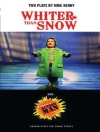In Performance and Religion in Early Modern England, Matthew J. Smith seeks to expand our view of “the theatrical.” By revealing the creative and phenomenal ways that performances reshaped religious material in early modern England, he offers a more inclusive and integrative view of performance culture.
Smith argues that early modern theatrical and religious practices are better understood through a comparative study of multiple performance types: not only commercial plays but also ballads, jigs, sermons, pageants, ceremonies, and festivals. Our definition of performance culture is augmented by the ways these events looked, sounded, felt, and even tasted to their audiences. This expanded view illustrates how the post-Reformation period utilized new capabilities brought about by religious change and continuity alike. Smith posits that theatrical practice at this time was acutely aware of its power not just to imitate but to work performatively, and to create spaces where audiences could both imaginatively comprehend and immediately enact their social, festive, ethical, and religious overtures.
Each chapter in the book builds on the previous ones to form a cumulative overview of early modern performance culture. This book is unique in bringing this variety of performance types, their archives, venues, and audiences together at the crossroads of religion and theater in early modern England. Scholars, graduate and undergraduate students, and those generally interested in the Renaissance will enjoy this book.
Table of Content
List of Illustrations
Acknowledgments
Prelude
1. Early Modern Theatricality across the Reformation
2. The Real Presence/Absence of God in the Chester Cycle Plays
3. Henry V and the Ceremonies of Theater
4. God’s Idioms: Sermon Belief in Donne’s London
5. Performing Religion in Early Modern Ballads
6. The Devils Among Us: Intertheatricality in Doctor Faustus and its Afterlives
Postlude: Ending with a Jig
Notes
Bibliography
Index
About the author
Matthew J. Smith is associate professor of English at Azusa Pacific University.












